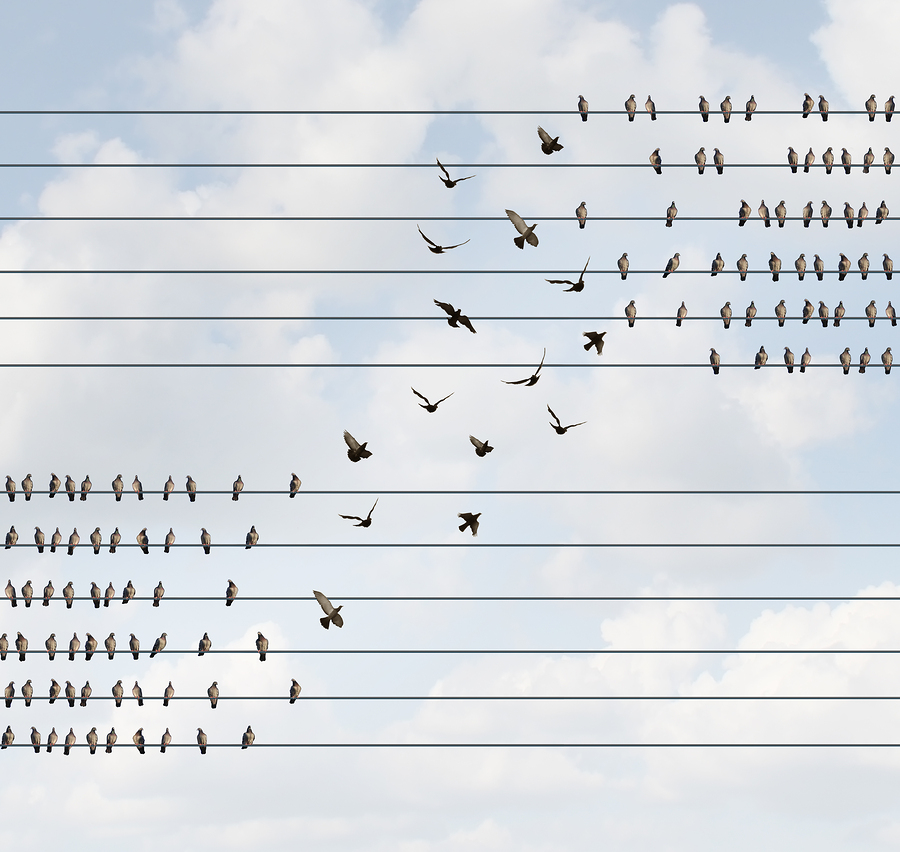Several decades ago, the British magazine, The Linguist printed a graphic with the phrase, “The strongest drive is not to Love or Hate; it is one person’s need to change another’s copy.”
In the cartoon, the word “change” was crossed out and replaced first by amend, then by revise, alter, rewrite, chop to pieces, then back to “change.”
I am not sure whether the cartoon necessarily struck a sensitive nerve among it’s readers, or simply revealed a common occurrence everyone could understand. But it was memorable!
The need to change someone else’ creativity is almost to the level of a universal truth, on the same lofty plateau as, “Every action has an equal and opposite reaction,” or “Always drink upstream from the herd.”
No matter what you write, many people who read it will first think, “If I were to have written this, I would have written it this way.” And then proceed to make the changes in their mind.
Every pastor of every church has at least one “sermon editor” in their congregation, who is not around during the preparation of their sermon, but is more than happy to offer a critique with suggested edits for future reference after the church service.
Relatively few people have the ability to discern whether something created by someone else accomplishes an intended purpose and leave it alone. The same principle plays out for any artistic endeavor from performing a song on the accordion to painting a bowl of fruit.
“Why did you put the bananas on top of the apples and oranges? Everyone knows the bananas form the base for the fruit bowl, dummy. Your painting will be all wrong!”
Hey, maybe they were going for something different, did you ever think of that?
Authors who work with editors (and visa versa) feel this tug-of-war every day. Most often the give and take is a collegial, collaborative effort, making for a better book, but sometimes it rises to the level of mortal combat, depending both on the strength of the author/editor relationship or respective personalities.
One attractive aspect of self-publishing is the elimination of an editor-battle. The author’s perspective will prevail if a disagreement ensues, a guarantee against loss of creative control.
The same potential battle happens between publisher, author, designer, editor, marketer or sales person, over many other elements of a book, such as:
Covers – the question is not who likes or doesn’t like a cover, it is whether it effectively portrays the book contents to a potential buyer. And the opinion of the book merchandiser at a major retailer really matters. “Frank says to make it green with black letters and they’ll buy 50,000 copies. Anyone care to disagree?”
Interior layout – an under-appreciated part of the book. Efficient page-use is not nearly as important as a pleasant experience for the reader, which are often different values entirely. Likewise, being overly creative on an interior can create problems for the reader. (How the interior layout translates to an eBook format is also important.)
Product description – this is more about key word use and clear communication about the contents of the book than spinning a creative tale. In the online retailing world where search engines rule, the choice of words will have an effect on sales. For this, effectiveness is more important than creativity.
Whichever side of the equation you might reside, keep focusing on the goal, to make a better book to sell to as many people as possible so it can be read and enjoyed.
Sometimes setting aside your personal opinion is key to achieving this goal. Maybe, just maybe someone else’ creative approach might be just fine and needs no editing.
But of course, it goes without saying your creative approach is always perfect. (Insert appropriate emoji depending on how much a sense of humor your have.)



 Ask Me Anything
Ask Me Anything

Hah! Good point, Dan. Hadn’t really thought about how universal that is. I think there’s humility in appreciating things for what they are, rather than for what we wished they would be. Goes for people, too.
I’d definitely say that from my experience, whenever professionals in the publishing industry (publisher, editor, book designer, marketer, etc.) have said I need to change something, they’ve been right 98% of the time. If you’re going to self-publishing to avoid clashing with other people, that’s a poor reason to do so, and your project will suffer because of it.
Thanks for the reminder that not always is my idea/POV THE best. When I wrote freelance for our local newspaper and for other periodicals, I learned this truth-let the editor of this publication be King/Queen. He or she knows more than me so learn from their critique/changes. That doesn’t mean writers heave their ideas under the oxcart or function with marshmallow brains, but instead exercise a teachable spirit.
Dan, as my hero, OC detective Adrian Monk, says: I don’t mind change. I just don’t like being around when it happens.
No matter your situation, there’s always someone who has a different (and, to their mind, better) idea. Thanks for reminding us.
Sometimes, it’s not the artist’s fault that the bananas is on top. Really enjoyed reading this. Thank you.
ARE! Goodness. It’s like knives on a chalkboard.
Dan, what a great article! Lots of food for thought. Thank you for sharing..
When I hired Kristen G I had never worked with an editor before. She ‘bled’ red ink all over my copy! At first I got a little mad about it, but when I realized how much better the copy was it became out little joke. I often think she gave me the transfusions I needed to be a better writer!
Whenever I finish a book, I read the one star reviews for it on Amazon. I do this to remind myself that no matter how much I like a book there are people out there who disagree. Also, it’s funny to read the changes these amateur reviewers think should have been made.
Dan I sure relate to this…when I decided to self-publish ‘Emerald Isle’ ( it was too Catholic for CBA and too religious for ABA) I got to choose the cover myself…and chose one with two rainbows. Largely set in the US, it is nevertheless an Irish story.
What I did not realize was that the rainbow is the symbol of al alternative-lifestyle part of the population, and that quick scans by potential readers in Amazon might give totally the wrong impression, so I was counseled to change it.
The advice had my best interest at heart, but the trouble is that I’m rather stubborn, and I happen to LIKE rainbows.
It might have cost me sales, but whenever I see the cover, I still like it, and I’m glad I didn’t change it.
Anyone who wants to see the cover, here it is:
https://smile.amazon.com/Emerald-Isle-Andrew-Budek-Schmeisser-ebook/dp/B01EZ4NPNA/ref=sr_1_1?ie=UTF8&qid=1500386762&sr=8-1&keywords=emerald+isle+budek-schmeisser
I do like change, Dan, but I’d rather have large-denomination bills.
I may not have to struggle against changes ordered by a publisher, but as an indie, it’s just as important to seek advice from skilled people that might make me change something. I give my cover designer enough info about the characters and plot to create something that would attract a buyer or a reader’s eye in a book store (click-bait for online sales). Then she takes control. I edit every section myself many times before sending to my betas, critique partner, and content editor, and I seriously consider even the smallest changes they recommend. I want the very best product I can possible produce, and that means the first and second (and third and fourth and…) version of something will very likely change. No one can order me to make the changes, but I’d be very foolish and the quality would suffer if I didn’t make some of them.
Such a good perspective! Your humility shows in the quality of your work.
Thanks, Brennan. What a nice thing to say! I am very proud of my humility.
🙂
That same humbling feedback can be gleaned from writers’ critique groups. It is tough, at times, to put your work out there, knowing that it is going to be criticized, but in the end, I almost always agree with the feedback others provide. It is amazing how we can craft a sentence and know (in our minds) exactly what it says and what it means, yet three people in a critique group have the same “Huh?” reaction to it.
Damon,
That used to happen when I wrote signs for the grocery store I worked in. I started a habit of asking co-workers if they got what I meant. The co-workers did; the problem was the customers didn’t. No matter how clearly I tried to write the sign, somebody always misunderstood.
Amen (says she with the recurring urge to change the Apostle Paul’s run-on sentences).
LOL!!! Okay, that was funny …
Thanks for your insight, Dan. Amen and amen.
That was an enjoyable read. I remind myself often that there are people who are experts in areas about which I know little more than “I like that, and I don’t like this.” If I am not deeply invested in a particular requested change, then why not rely on the experts. We all want the same thing in the end. If I *am* deeply invested, meaning I chose that illustration, or that title, or perhaps that phrasing for a specific reason, then I need to make my defense, but be open to persuasion. Little good can come from having my heels dug in, refusing to budge.
Wow, The Linguist nailed it! I’m afraid I got a double portion of that reflex along with my firstborn gene.
It really is one of the hardest things, quashing that urge to “fix” things that aren’t my jurisdiction, especially as a graphic designing grammar cop.
I love watching someone who narrowly escaped my twitching, bleeding red ink pen who ends up soaring high above my “know it all” pride. God has a plan that I know nothing about, and the victory of learning to shut up is sweet.
Great post!